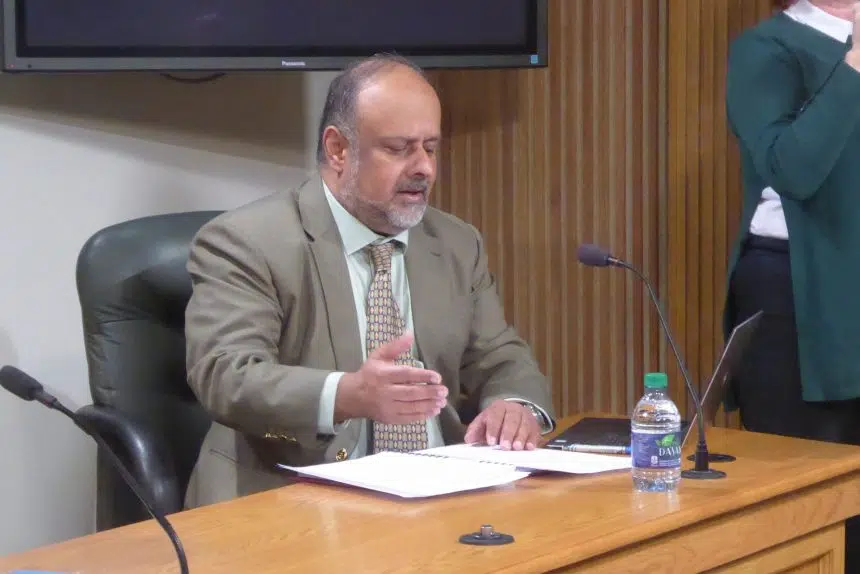For a ninth straight day, Saskatchewan has reported a single-digit total of new COVID-19 cases and a double-digit total of recoveries.
In a media release Tuesday, the provincial government said there were seven new confirmed cases, bringing the provincial total to 599. There also were 15 recoveries, increasing that total in Saskatchewan to 470.
All seven of the new cases are in the far north, with four in Beauval and three in La Loche.
Six Saskatchewan residents have died to date. There now are 123 cases that are considered active.
Five people are in hospital, including three who are in intensive care in Saskatoon. Two people — one each in Regina and Saskatoon — are receiving inpatient care.
Also Tuesday, on the heels of the May long weekend, Premier Scott Moe announced the northern travel ban will be lifted for the central and northeast regions of the province including La Ronge, Air Ronge, Pelican Narrows and Sandy Bay.
Non-essential travel is still prohibited for Bear Creek, Beauval, Birch Narrows Dene Nation, Black Point, Buffalo Narrows, Buffalo River Dene Nation, Canoe Lake First Nation, Clearwater River Dene Nation, Cole Bay, Descharme Lake, Dillon, Dore Lake, English River First Nation, Garson Lake, Green Lake, Ile a la Crosse, Jan’s Bay, Lac La Plonge, La Loche, Little Amyot Lake, Michel Village, Patuanak, St. George’s Hill, Sled Lake and Turnor Lake.
A look at the numbers
Of the total number of cases, 323 are community contacts, 139 involve travellers, 69 don’t have any known exposures and 68 are being investigated by local public health officials.
So far, 48 health-care workers have contracted the virus, although some did so outside of work.
The total number of cases includes 226 from the far north, 164 from the Saskatoon area, 106 from the north, 76 in the Regina area, 15 who live in the south and 12 from the central region.
In terms of ages, 216 cases are in the 20-to-39 range, 182 are between the ages of 40 and 59, 99 are in the 60-to-79 range, 84 involve people 19 years of age and under, and 18 are in the 80-and-over range.
There have been 158 recoveries in the Saskatoon area, 118 in the far north, 95 in the north, 74 in the Regina region, 15 in the south and 10 in the central area.
The 447 tests conducted in the province Monday brought the total to date to 41,606.
Phase 2 starts
With more stores and services opening Tuesday in the Re-Open Saskatchewan plan, the government reminded residents to keep practising preventative measures.
The province suggested shopping on days when crowds are smaller and only when items are needed. The rules of the businesses visited should be respected and people shouldn’t loiter in stores or malls or gather in groups.
As well, food purchased in a store or in a mall food court has to be taken home before it’s eaten.
As for Phase 3, Moe says there will be a rough target date set likely for June in order to give those businesses time to plan for new guidelines but the province will monitor case numbers closely. In the event of localized outbreaks, parts of the reopen plan may be delayed or restrictions put back in place temporarily.
SHA’s Phase 1 begins
The Saskatchewan Health Authority (SHA) once again started offering some health services that had been stopped due to the pandemic.
“It’s a delicate balance we begin today toward a ‘new normal’ while still responding to the realities of a global pandemic,” SHA CEO Scott Livingstone said in a media release.
“Teams have and will continue to balance service resumption plans with the necessary health system capacity required for COVID-19 and non-COVID-19 patients; including the need for ongoing expanded testing capacity, long-term contact tracing demands and maintaining the ability for the foreseeable future to surge to meet the requirements when localized outbreaks happen.”
Services such as outpatient physiotherapy appointments, kidney health services, some laboratory services, home care and expanded immunizations resumed in some areas Tuesday.
The first phase also will include an expansion of surgeries beyond three-week urgent and emergent cases to now include six-week urgent cases. The SHA said there won’t be a significant increase in surgeries immediately.











